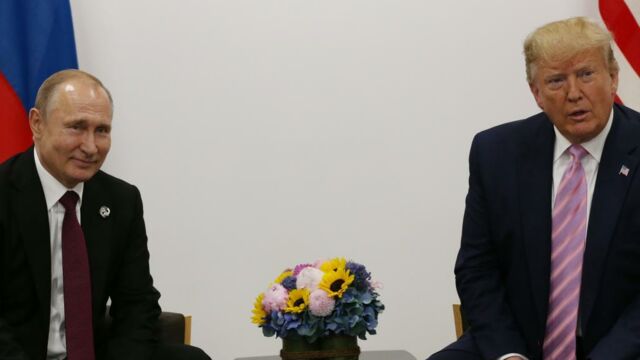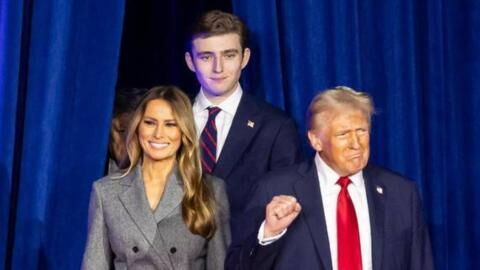Donald Trump and Vladimir Putin have shared a history of carefully worded diplomacy, one that often drew global curiosity and criticism alike. Over the years, Trump has walked a tightrope, occasionally praising the Russian president while steering clear of directly condemning Moscow's actions.
Discover our latest podcast
But now, that long-maintained balancing act seems to have tilted. After months of avoiding the label, the US President has described Russia as the 'aggressor' in its war against Ukraine. The timing is notable, coming amid failed diplomatic efforts, wavering alliances, and mounting international pressure. Trump's new stance could potentially reshape the narrative — at least from Washington's perspective.
Trump labels Russia the 'aggressor' in Ukraine conflict
During a press briefing on 14 September, President Trump remarked:
8,000 soldiers have died this week, from both countries. Some more from Russia, but when you're the aggressor, you lose more.
As reported by Politico, this marks the first time Trump has publicly acknowledged Russia as the instigator in the war against Ukraine. The statement follows months of resistance, with Trump previously rejecting international motions that condemned Russia's actions.
Earlier this year, Trump's administration joined Russia and North Korea in voting against a United Nations resolution supporting Ukraine's territorial integrity. He also dismissed a G7 statement labelling Russia an aggressor, and in April, he controversially said:
You don't start a war against someone 20 times your size and then hope that people give you some missiles.
Over the summer, however, Trump's stance appeared to evolve. His efforts to broker peace talks between Russian President Vladimir Putin and Ukrainian President Volodymyr Zelenskyy have stalled, prompting him to adopt a firmer tone. Trump added:
I stopped seven wars, and I thought this one was going to be easy for me, but this has turned out to be tough.
The administration is now facing louder calls to impose more severe sanctions on Russia. However, Trump made it clear that any such move by the US would depend on its European allies. He said:
They are still buying oil from Russia. And the sanctions that they are putting on are not tough enough.
Russia responds: Economic stability and military progress
Not one to let remarks go unanswered, the Kremlin reacted swiftly. As reported by Reuters, Russian officials rejected Trump's description of the country as a 'paper tiger'. They insisted their military campaign in Ukraine is ongoing and deliberate.
Kremlin spokesperson Dmitry Peskov addressed the comments, saying:
Of course, President Trump heard Zelenskiy's version of events. And apparently, at this point, this version is the reason for the assessment we heard.
In the same interview with RBC radio, he added that Russia was 'moving forward very carefully to minimise losses' and maintain their 'offensive potential.'
Peskov also pushed back on Trump's metaphor and said they are a 'bear' and added:
There is no such thing as a paper bear.
He stressed that Russia 'maintains its resilience' and 'macroeconomic stability', despite ongoing sanctions and broader economic headwinds. While he admitted there are 'certain tensions and problem areas,' he insisted these were part of a manageable economic landscape.
Read more:
Who was Charlie Kirk? Inside the life and death of Trump’s closest young ally
Donald Trump breaks silence on social media health speculation after a quite long weekend
Donald Trump urges immediate relocation of Washington DC's homeless far from the capital
Sources used:
Politico: Trump finally calls Russia the 'aggressor' in war on Ukraine
Reuters: Russia says it's advancing in Ukraine and its economy is stable, after Trump calls it 'paper tiger'















